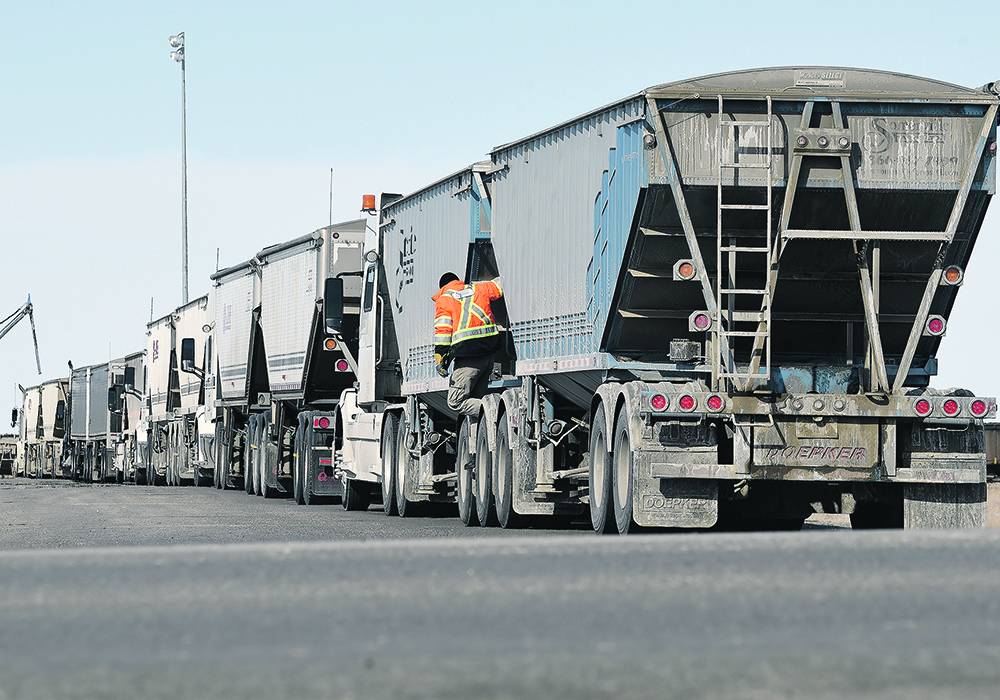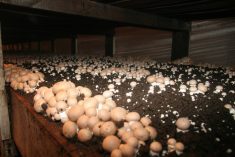New Canadians from the Ukraine are often educated and eager to work but find it difficult to navigate language barriers
Many Ukrainian newcomers have arrived at Regina International Airport over the last year and half clutching onto bags packed with the only belongings they have left from their former homes.
The Russian invasion carries on in Ukraine, while these select few, after having passed multiple health exams and other legal hurdles, have made it to the quieter environs of the Canadian Prairies.
Fleeing threats of bombings, raids and potential death, displaced Ukrainians have been coming to Canada since early 2022. There have been labour shortages across the agricultural industry since COVID-19 that these newcomers have been able to fill.
Read Also

New coal mine proposal met with old concerns
A smaller version of the previously rejected Grassy Mountain coal mine project in Crowsnest Pass is back on the table, and the Livingstone Landowners Group continues to voice concerns about the environmental risks.
The Ukrainian Canadian Congress in Saskatchewan (UCC SK) has worked with new arrivals in the province to help them find their footing.
Many Ukrainian newcomers are well educated, motivated people eager to work in their new place of residence. However, often suffering from forms of post-traumatic stress disorder, language barriers and lack of knowledge of available jobs, this new labour force can spend weeks to months on government assistance and the good will of private citizens before finding meaningful work.
“I would say that the main challenges for people to obtain or find employment in (the agriculture) sector is the language barrier because not many people can communicate clearly and have that good enough language capacity to find a job,” said Andrii Stakhov, employment liaison and settlement supervisor at the UCC SK.
Stakhov said many of the incoming Ukrainians are coming fresh out of horrific circumstances and are reluctant to leave larger urban areas where there are communities of Ukrainian-speaking people.
Once displaced Ukranians decide to go to Saskatchewan, usually based on the more inexpensive cost of living compared to Ontario or British Columbia, Stakhov and his team try to convince them that this could be an opportunity to change careers.
“Regina and Saskatoon are getting overcrowded by displaced people and they have to compete with each other to find employment. That’s why it’s good to consider the agriculture sector because this is a good opportunity for them to start a new career, to try something new in their lives,” Stakhov said.
The most difficult for those trying to get into the ag sector in Saskatchewan is getting the required medical exams. Individuals wishing to work in childcare, primary or secondary school teaching, health field occupations and agricultural occupations who want work in these occupations must complete special medical exams and reapply for work permits to work in these restricted areas.
With the most outstanding demand in the ag sector for labour being for Class 1 drivers, it has been especially challenging to fill these roles.
“It’s very costly to get this driver licence. Especially if you are talking about the grain farm, they definitely need drivers. Also, if we’re talking about tractors and combines, they definitely need well-qualified drivers,” Stakhov said.
There are also important matters to deal with when whole families from Ukraine arrive in Saskatchewan communities. There are needs for childcare, schools, counselling and language classes.
Partnerships have been established between UCC SK and the Saskatoon Public Library for counselling services, interpretation services with SGI in Saskatoon for those training for their Class 1 drivers’ licence, and other organizations like Regina Open Door Society and Regina Immigrant Women Centre who check on their clients to see how they are settling in.
Producers looking to hire Ukrainian immigrants have been welcoming, offering housing and food.
While it can be challenging for the displaced Ukrainians and their prospective employers, people like Stakhov and the UCC SK are helping overcome most of the hurdles both sides face in getting the labour and employment they need.

















